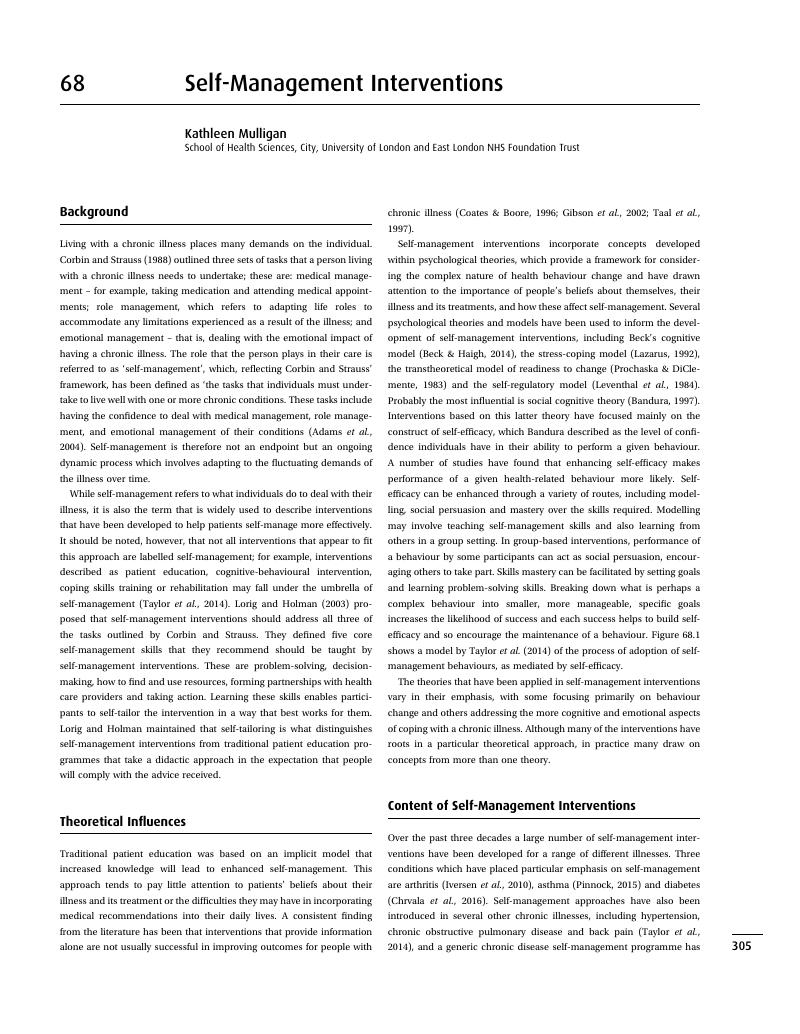Book contents
- Cambridge Handbook of Psychology, Health and Medicine
- Cambridge Handbook of Psychology, Health and Medicine
- Copyright page
- Contents
- Contributors
- Preface
- Part I Psychology Health and Illness
- Section 1 Psychological Aspects of Health and Illness
- Section 2 Psychological Assessment
- Section 3 Psychological Interventions
- 52 Behaviour Therapy
- 53 Biofeedback
- 54 Chronic Pain Management
- 55 Cognitive Behaviour Therapy
- 56 Cognitive Behavioural Couple Therapy
- 57 Community-Based Interventions
- 58 Counselling
- 59 Group Therapy
- 60 Health Behaviour Change Interventions
- 61 Health Promotion
- 62 Hypnosis
- 63 Mindfulness
- 64 Motivational Interviewing
- 65 Peer Support Interventions
- 66 Physical Activity Interventions
- 67 Psychodynamic Psychotherapy
- 68 Self-Management Interventions
- 69 Stress and Crisis Management
- 70 Technology-Assisted Interventions
- 71 Worksite Interventions
- Section 4 Health Care Practice
- Part II Medical Topics
- Index
- References
68 - Self-Management Interventions
from Section 3 - Psychological Interventions
Published online by Cambridge University Press: 05 June 2019
- Cambridge Handbook of Psychology, Health and Medicine
- Cambridge Handbook of Psychology, Health and Medicine
- Copyright page
- Contents
- Contributors
- Preface
- Part I Psychology Health and Illness
- Section 1 Psychological Aspects of Health and Illness
- Section 2 Psychological Assessment
- Section 3 Psychological Interventions
- 52 Behaviour Therapy
- 53 Biofeedback
- 54 Chronic Pain Management
- 55 Cognitive Behaviour Therapy
- 56 Cognitive Behavioural Couple Therapy
- 57 Community-Based Interventions
- 58 Counselling
- 59 Group Therapy
- 60 Health Behaviour Change Interventions
- 61 Health Promotion
- 62 Hypnosis
- 63 Mindfulness
- 64 Motivational Interviewing
- 65 Peer Support Interventions
- 66 Physical Activity Interventions
- 67 Psychodynamic Psychotherapy
- 68 Self-Management Interventions
- 69 Stress and Crisis Management
- 70 Technology-Assisted Interventions
- 71 Worksite Interventions
- Section 4 Health Care Practice
- Part II Medical Topics
- Index
- References
Summary

- Type
- Chapter
- Information
- Cambridge Handbook of Psychology, Health and Medicine , pp. 305 - 308Publisher: Cambridge University PressPrint publication year: 2019



